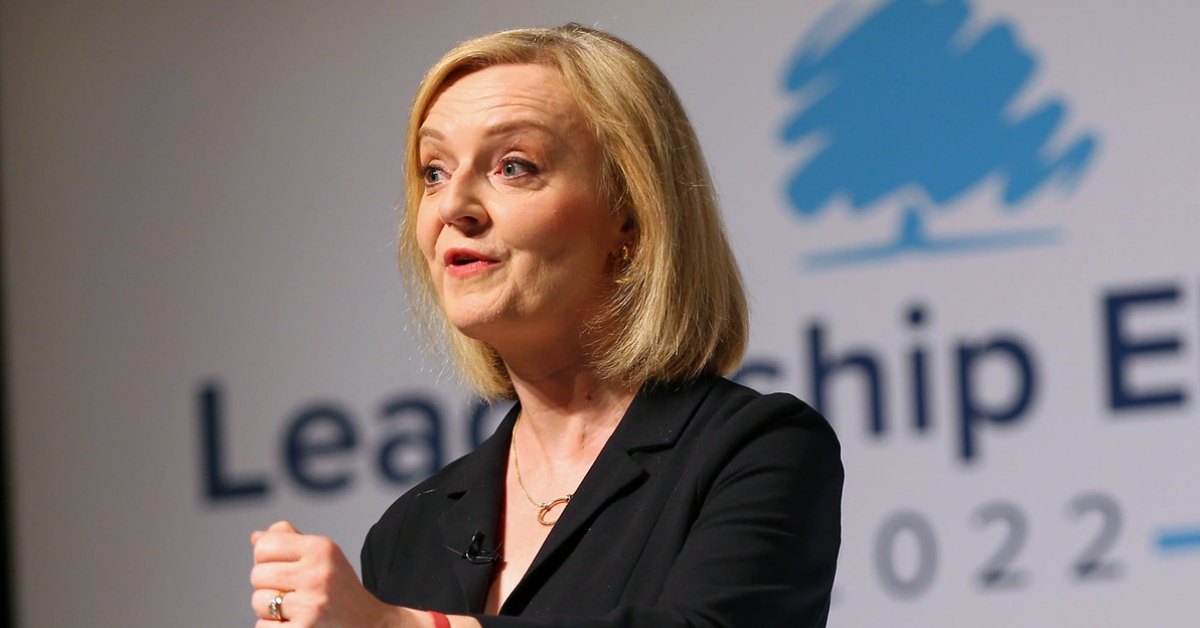Westminster is gearing up for one of those weeks defined by feverish chatter, a fourth estate in over-drive and a wider sense that our politics have hit a defining moment.
On Monday, at lunchtime, the Conservative Party will have a new leader. On Tuesday, that new leader will head north with outgoing premier Boris Johnson.
At Balmoral, the constitutional protocols will be enacted. He will cease to be and almost certainly Liz Truss will be asked to form a government.
She will head back to Westminster, stand in front of that famous black door and mouth what all politicians in such circumstances mouth. She will shower the nation in the verbal comfort blanket of warm words.
There will be a nod to her supporters, the members of the Conservative Party who elected her, but overwhelmingly this will be an address to the country irrespective of the political prejudice of the voter. Expect to hear the “governing for all” mantra.
This is all part of a predictable choreography which overly-seasoned observers like myself have witnessed many times before.
What I have rarely witnessed is the cocktail of issues which in many regards make the new PM’s job the most daunting of recent times.
The underlying global factors driving the cost of living crisis have the capacity to endure more profoundly than the banking crisis of 2008 or the downside of the pandemic.
More than a decade ago, as the world economy shuddered as a result of the folly of bankers, other bankers recapitalised and stabilised institutions and ordinary people paid for the folly in the form of austerity measures as governments cut spending.
The economy survived Covid. The splurge of extra borrowing allied to quantitative easing meant that mass unemployment was avoided. Everyone breathed a sigh of relief.
Then came the current energy crisis. It could yet prove the most difficult for governments to manage.
Liz Truss, who does not strike me as a political or intellectual heavyweight, is nevertheless savvy enough to be privately terrified by several truths.
Chief among those truths is that the key factors driving higher energy bills and rampant inflation are beyond the control of the government she will lead.
She can’t bring peace to Ukraine, refashion Vladimir Putin’s Russian nationalism, nor deal with the spiralling cost of raw materials.
For that reason, the business of predicting inflation, economic growth and the extent of rising fuel bills is a lottery. Never has crystallising crisis been so fraught, rendered meaningless by the shifting geo-economic sands.
Hard truth number two for Truss is that events will govern her response to a crisis which might still be running well beyond the next election.
Her sound-bite-as-policy campaign and adored anchors of low tax and a smaller state will count for nothing.
Reality and the primacy of the electoral cycle will quickly lead to a trashing of previously held positions as she sets about implementing financial help for businesses and households that will make the furlough bill look like loose change.
She can do nothing, absolutely nothing to prevent her becoming the Conservative prime minister who presides over debt levels that would normally induce apoplexy in fiscally prudent Tories.
Here is hard truth number three. She could splash the cash time and again and discover she is locked into a spending culture that will last as long as the crisis. Problem is, there is no end date for this crisis.
It could go on and on and on as part of a painful new normal. It could be defined by a time when the overwhelming imperative to rescue consumers and households means that there is little scope to do much else in economic policy.
Would Rishi Sunak do anything different? Or Keir Starmer?
It seems to this observer that spend, spend, spend is the policy that will be adopted by whoever the occupant of Downing Street happens to be.
A final word. If you thought chaos was the defining characteristic of the Johnson years you might have seen nothing yet.
Cameron, May and Johnson all had weaknesses but none as palpable as the leader-in-waiting.
It’s going to be interesting but not in a good way.
Follow STV News on WhatsApp
Scan the QR code on your mobile device for all the latest news from around the country


 Flick
Flick

























